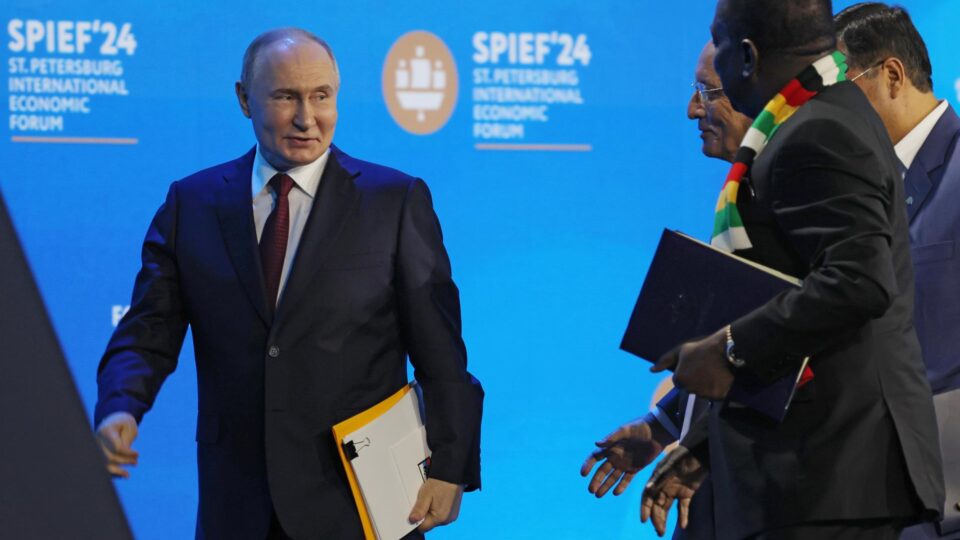
The first BRICS summit after the bloc’s expansion will be held in Kazan, Russia, between October 22nd and 24th. The event comes at a time of growing attention to the new payment system BRICS Paywhich aims to strengthen economic and commercial ties between member countries.
Under Russia’s rotating presidency, the group, which now includes Saudi Arabia, Egypt, the United Arab Emirates, Iran and Ethiopia, seeks to advance economic initiatives that challenge dependence on Western financial systems such as the International Monetary Fund (IMF)and strengthen the autonomy of their economies.
Proposal for an Alternative to the IMF
The Russian government, which leads the BRICS in 2024, has defended the creation of an alternative to the IMF, according to statements by Russian Finance Minister, Anton Siluanov.
According to Siluanov, the global financial system is dominated by Western countries, which, according to him, justifies the need for a new mechanism for the BRICS countries, which currently represent 37% of the world economy.
The topic should be discussed during this month’s summit, with a focus on measures that can reduce the economic and political pressure exerted by Western nations.
BRICS Pay: An Alternative Payment System
Parallel to geopolitical discussions, BRICS Pay has been one of the central themes of economic negotiations within the bloc.
According to the initiative’s official website, BRICS Pay is being developed as a decentralized and independent payment system, similar to the SWIFT used in Europe.
The objective is to allow member countries to carry out commercial and financial transactions more quickly and cheaply, without external interference.
Chinese experts highlighted that BRICS Pay can provide a secure and efficient platform for the settlement of goods and services between the bloc’s countries, helping to reduce dependence on the US dollar.
This measure can contribute to a greater balance in international trade, promoting financial diversification and economic autonomy between BRICS countries and their trading partners.
Advances in the Development of BRICS Pay
The idea of a unified payment system for the BRICS has been discussed since 2019. During the BRICS Business Forumheld in Moscow on October 19th and 20th, participants had the opportunity to test the company’s retail technologies BRICS Payan indication that the system is at an advanced stage of development.
In 2020, the Moscow Declaration of the 12th BRICS Summit recognized the continued efforts in creating the BRICS Payments Task Force.
The system is seen as an essential tool to reinforce the economic sovereignty of member countries, in addition to deepening cooperation in strategic areas, such as trade and investment.
Impact of Dedollarization
The search for alternatives to the US dollar has been accelerated in recent years, in part due to financial sanctions imposed by the United States, which make it difficult for some countries to settle transactions in dollars.
Experts say that the new BRICS payment system can reduce this dependence and provide more security in international transactions.
According to Wang Peng, a researcher at the Beijing Academy of Social Sciences, BRICS Pay represents an attempt to limit exchange rate risks associated with the dollar’s dominance in the global financial system.
“The hegemony of the dollar has left many countries vulnerable to economic pressures,” said Wang. He believes that the new system will help create a more diversified and balanced international financial landscape, where countries will be able to carry out their transactions more independently.
Implications for Multilateral Cooperation
In addition to facilitating commercial transactions within BRICS, the new payment system can also serve as a platform for multilateral cooperation, including the Belt and Road Initiative (BRI).
According to Professor Song Wei of Beijing Foreign Studies University, BRICS Pay could play an important role in facilitating trade-related investment settlements, especially as the BRI advances in its development.
With a focus on high-quality development and in-depth economic cooperation, the BRICS payment system could become a crucial component in promoting greater integration among developing economies, reducing financial barriers and facilitating broader trade partnerships.
The Future of BRICS and the New Economic Order
With the expansion of the bloc to include new members, such as Saudi Arabia, Egypt, the United Arab Emirates, Iran and Ethiopia, the BRICS consolidates itself as one of the most significant economic powers in the world.
The Russian presidency, which began in January 2024, has as one of its priorities the implementation of mechanisms that promote economic and financial collaboration between members, with BRICS Pay as one of its main tools.
The Kazan summit therefore comes at a critical time for the group. With a payment system in an advanced testing phase and discussions on the creation of an alternative to the IMF, the BRICS seeks to consolidate its position on the international scene as a force capable of influencing the new global economic order.
With information from the Global Times
Source: https://www.ocafezinho.com/2024/10/18/brics-comeca-a-desenvolver-sistema-proprio-de-pagamento-e-apavora-cupula-do-fmi/

